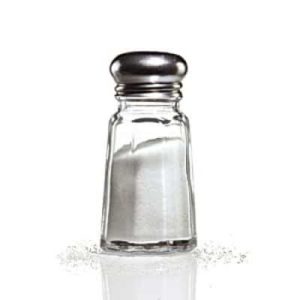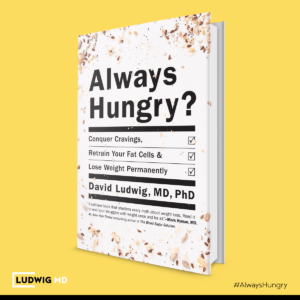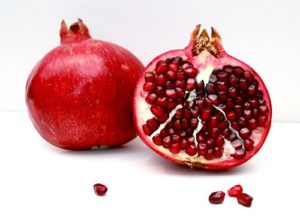 Iodized salt was introduced in the 1920s as a way to prevent iodine deficiency. It worked! But now, some experts worry that if people really start cutting back on salt, thyroid problems and birth defects could be an unintended consequence.
Iodized salt was introduced in the 1920s as a way to prevent iodine deficiency. It worked! But now, some experts worry that if people really start cutting back on salt, thyroid problems and birth defects could be an unintended consequence.
Your body needs iodine in order to produce thyroid hormone. Iodine deficiency is especially dangerous (and especially common) during pregnancy, when it can cause problems with the infant’s neural development and lead to mental retardation. Some researchers are investigating whether low iodine levels during pregnancy might increase the risk of ADHD.
Sodium is intake up but iodine intake is down
Iodized salt is the primary source of iodine in the American diet. But even though average salt consumption is twice the recommended level, iodine intake has actually declined about 50% over the last 30 years. How can that be? Well, we used to cook at home, using iodized salt. Today, most of the salt we consume comes from packaged and processed foods–which are not necessarily made with iodized salt.
As long as we’re bossing around the food industry and requiring them to reduce the sodium in their products, perhaps we ought to require them to use iodized salt.
Alternate sources of iodine
In the meantime, if you don’t use iodized salt at home (or you don’t cook much), be sure you have an alternate source of iodine. Seafood and edible seaweeds, such as wakame, are particularly rich in iodine. You also get some iodine from vegetables, depending on the iodine content of the soil in which it is grown. According to the Linus Pauling Institute, iodine is added to feed for dairy cows in the U.S., which makes dairy products a fairly good source of iodine.
Even though iodine intake has declined, most people are still getting the recommended amount. But if you are pregnant (or planning on it) a multivitamin with the daily recommended amount of iodine (150 mcg) would be a good back-up.
 Jeff recently sent me a link to an article in Harper’s Bazaar, warning that our recent obsession with kale may have a sinister side-effect: heavy metal poisoning.
Jeff recently sent me a link to an article in Harper’s Bazaar, warning that our recent obsession with kale may have a sinister side-effect: heavy metal poisoning.






